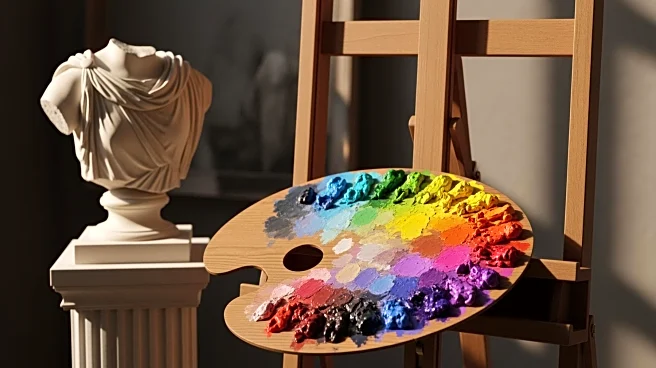What's Happening?
The French art community is strongly opposing a proposed tax on art ownership, which would classify artworks as 'unproductive wealth' under the Immovable Property law. This proposal, introduced by Jean-Paul
Matteï and Philippe Brun, has been provisionally approved by MPs and is set to be reviewed by the French Senate. Major organizations, including the Comité Professionel des Galeries d’Art and Art Basel, have issued a joint statement condemning the move, arguing it could drive collectors to relocate their transactions and storage to countries like Switzerland, the U.S., or the U.K.
Why It's Important?
The proposed tax could significantly impact France's position as a leading art market hub, especially in the post-Brexit era. By imposing a wealth tax on art, France risks losing its competitive edge, potentially leading to a decline in art sales and a shift of art transactions to other countries. This could affect the livelihoods of artists, galleries, and dealers, as well as the broader cultural ecosystem. The opposition from major art organizations underscores the potential economic and cultural ramifications of the tax, highlighting the need for policies that support rather than hinder the art market.
What's Next?
The bill will be reviewed by the French Senate and a joint parliamentary committee before returning to the National Assembly. If passed, it could lead to significant changes in the art market, prompting collectors and dealers to seek alternative locations for their transactions. The art community is mobilizing to defend the tax exemption for artworks, and more than 1,500 people have signed a petition against the bill. The outcome of this legislative process will be closely watched by stakeholders in the art industry, as it could set a precedent for other countries considering similar measures.
Beyond the Headlines
The proposed tax raises broader questions about the valuation of art and its role in society. By categorizing art as 'unproductive wealth,' the legislation challenges the cultural and historical significance of artworks, potentially reducing them to mere financial assets. This shift in perception could have long-term implications for the art world, influencing how art is created, valued, and preserved. The debate also highlights the tension between economic policies and cultural preservation, emphasizing the need for a balanced approach that recognizes the multifaceted value of art.








